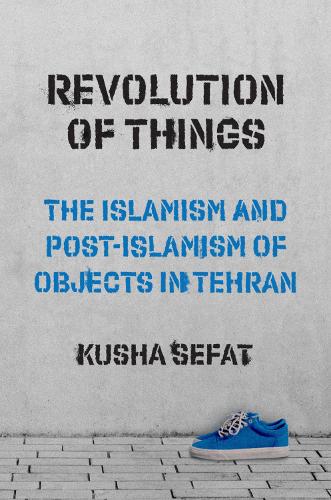
Revolution of Things: The Islamism and Post-Islamism of Objects in Tehran
(Hardback)
Available Formats
Publishing Details
Revolution of Things: The Islamism and Post-Islamism of Objects in Tehran
By (Author) Kusha Sefat
Princeton University Press
Princeton University Press
29th August 2023
United States
Classifications
Tertiary Education
Non Fiction
Sociolinguistics
Political science and theory
320.557095525
Physical Properties
Hardback
184
Width 156mm, Height 235mm
Description
An exploration of the ways that shifting relations between materiality and language bring about different forms of politics in Tehran
In Revolution of Things, Kusha Sefat traces a dynamism between materiality and language that sheds light on how the merger of the two permeates politics. To show how shifting relations between things and terms form the grounds for different modes of action, Sefat reconstructs the political history of postrevolutionary Iran at the intersection of everyday objects and words. Just as Islamism fashioned its own objects in Tehran during the 1980s, he explains, tyrannical objects generated a distinct form of Islamism by means of their material properties; everyday things from walls to shoes to foods were active political players that helped consolidate the Islamic Republic. Moreover, President Rafsanjanis liberalization in the 1990s was based not merely on state policies and post-Islamist ideologies but also on the unlikely thingsincluding consumer products from the Westthat engendered and sustained liberalism in Tehran.
Sefat shows how provincial vocabularies transformed into Islamist and post-Islamist discourses through the circulation of international objects. The globalization of objects, he argues, was constitutive of the different forms that politics took in Tehran, with each constellation affording and foreclosing distinct modes of agency. Sefats intention is not to alter historical facts about the Islamic Republic but to show how we can rethink the matter of those facts. By bringing the recent material turn into conversation with the canons of structural analysis, poststructuralist theory, sociolinguistics, and Middle East studies, Sefat offers a unique perspective on Irans revolution and its aftermath.
Author Bio
Kusha Sefat is assistant professor of sociology at the University of Tehran.
